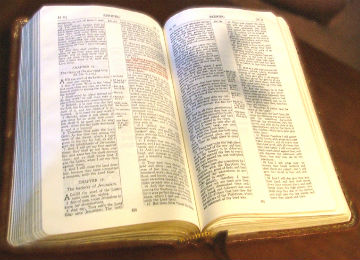
Christians are frequently reminded to “remember the reason for Christmas,” meaning, of course, that we should turn our attention away from the cultural trappings and to the fact that Jesus was born to Mary in Bethlehem. But this Christmas, perhaps we should fix our attention a little more closely, not just on the details of Jesus’ birth, but on the miracle of the incarnation. In so doing, we join a great cloud of Christian witnesses, who have reflected deeply on this glorious mystery.
Cyril of Alexandria, who lived and died and ruled the church in the most important Christian city in Egypt in the late- 4th and early- 5th century, wrote this:
For Scripture does not say that the Word united to himself the person of man but that ‘he became flesh.’ But this expression the Word became flesh is nothing else than that he became partaker of flesh and blood, like us and made our body his own. He came forth a man of a woman, not casting aside his being God and the fact of his having been begotten of God the Father. Even in the assumption of flesh he remained what he was. This is the doctrine that strict orthodoxy everywhere prescribes. It is this doctrine we shall find the holy Fathers held.[1]
Gregory of Nazianzus, a 4th century Christian born in what is now modern-day Turkey, travelled and wrote and debated many truths about Christ’s being and the Trinity. Here is some of what he wrote on the incarnation:
Here is my teaching about the novel birth of Christ…For he undertook all obligations, paying to the Law a due return for his nurture; indeed, as I see it, it was a parting gift to the Law as it withdrew from the scene. But when he had been heralded by the brightly shining lamp of great light, the lamp that preceded him at his birth and preceded him in his teaching, proclaiming Christ my God in the midst of the wilderness, then was he fully revealed and went as intermediary to those who were far off and those who were near, being a cornerstone joining both….For mine is the blood Christ my Lord poured out, a ransom for primal ills, a recompense for the world.[2]
Augustine of Hippo, known to us mostly for City of God and Confessions, also wrote about the body of Jesus, which, resurrected, lasts for eternity:
Christ did not take human form for a time, to show himself to man in this guise, an outward appearance that should thereafter be discarded. He took the visible form of man into the unity of his person, the form of God remaining invisible. Not only was he born in that form of a human mother, but he also grew up in it. He ate and drank and slept and was put to death in that form. In that same human form he rose again and ascended into heaven. He now sits at the right hand of the Father in that same human form, in which he is to come to judge the living and the dead, in which he will, in his kingdom, ‘be made subordinate to God who made all things subordinate to him.’[3]
Or, moving forward nearly 1300 years, we come to a quote which may be more familiar to us today:
The Son of God, the second person of the Trinity, being very and eternal God, of one substance and equal with the Father, did, when the fullness of time was come, take upon Him man's nature, with all the essential properties, and common infirmities thereof, yet without sin; being conceived by the power of the Holy Ghost, in the womb of the virgin Mary, of her substance. So that two whole, perfect, and distinct natures, the Godhead and the manhood, were inseparably joined together in one person, without conversion, composition, or confusion. Which person is very God, and very man, yet one Christ, the only Mediator between God and man.[4]
Don’t just “remember” this season; reflect – and reflect deeply.
“And the Word Became flesh and dwelt among us, and we have seen his glory, glory as of the only Son from the Father, full of grace and truth.”[5]
[1] Second Letter to Nestorious (Letter 4).
[2] Excerpted from “On the Testaments and the Coming of Christ,” from his Personal Poems 8:64-81,PA 45, 47.
[3] Against Maximus I:19.
[4] Westminster Confession of Faith VIII:2.
[5] John 1:14

The Alliance of Confessing Evangelicals is member supported and operates only by your faithful support. Thank you.














 © Alliance of Confessing Evangelicals
© Alliance of Confessing Evangelicals


